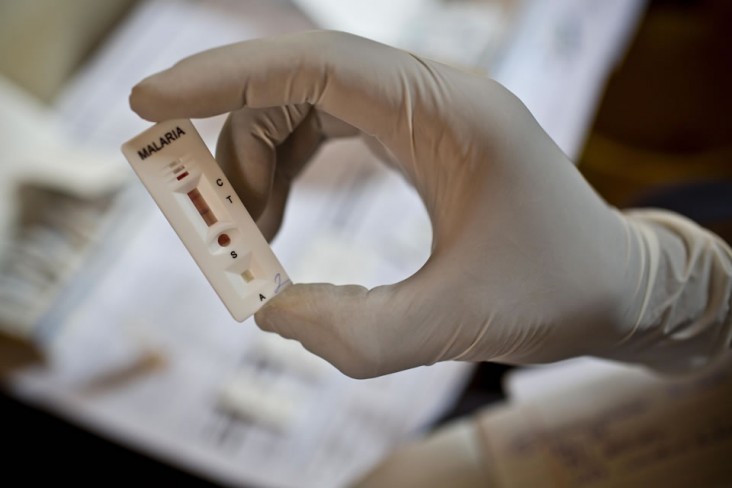- What We Do
- Agriculture and Food Security
- Democracy, Human Rights and Governance
- Economic Growth and Trade
- Education
- Environment and Global Climate Change
- Gender Equality and Women's Empowerment
- Global Health
- Humanitarian Assistance
- Transformation at USAID
- Water and Sanitation
- Working in Crises and Conflict
- U.S. Global Development Lab
Speeches Shim

Antimicrobial resistance (AMR) is a major public health concern with the potential to jeopardize our collective ability to treat and prevent infections caused by microorganisms including bacteria, parasites, viruses and fungi. AMR develops when these microorganisms no longer respond to medicine designed to treat them, making even common infections or routine surgery deadly. When resistance occurs, treatment becomes less effective, patients remain ill and infectious longer, and the cost and duration of treatment increases.
The World Health Organization (WHO) estimates that more than half of all medicines are inappropriately prescribed, dispensed or sold, and that half of those used are taken incorrectly. The overuse, underuse and misuse of medicines results in the waste of scarce resources and threatens the health of individuals and communities in every country. While AMR is a global problem, low- and middle-income countries are particularly at risk, as local health systems are often not prepared to address the complex causes and complications associated with drug-resistant infections.
USAID invests in health systems strengthening to combat the development and spread of AMR, recognizing that the factors that contribute to AMR can only be addressed through integrated efforts. Effective management of medicines and other health products such as vaccines, diagnostics, and devices through strong health systems can help minimize their misuse while ensuring that efforts to expand access continue in an equitable and responsible manner. USAID is working with partner country governments and the private sector to respond to the threat of AMR in multiple ways, including:
- Supporting the development of national strategies and action plans.
- Building local, national and regional advocacy and coalitions.
- Developing and implementing antimicrobial stewardship and infection prevention and control programs including improved case management.
- Strengthening regulatory capacity and quality assurance systems to ensure the quality, safety and efficacy of medicines and other health products.
- Assessing and strengthening surveillance systems in the animal and human health sectors and reliable reference laboratory capacities.
- Strengthening supply chains to ensure the continuing availability of diagnostic tests and medicines and avoid interruptions in testing and treatment.
- Developing, implementing and monitoring the use of standard treatment guidelines, essential medicines lists and formularies.
- Supporting the review of antimicrobial use and programs to correct identified problems.
- Reforming pre- and in-service training curricula for health professionals to ensure that AMR, infection control, pharmacovigilance, and rational use of antimicrobial medicines are adequately covered.
- Expanding access to and utilization of vaccines to prevent infection and reduce the need for antimicrobials.
- Developing, publishing and disseminating global technical leadership documents that support rational medicine use and AMR containment.
USAID partners with other countries and organizations to combat AMR through the Global Health Security Agenda and in support of the U. S. National Strategy for Combating Antibiotic-Resistant Bacteria (2014) [PDF, 481KB] and Action Plan for Combating Antibiotic-Resistant Bacteria (2020) [PDF, 442KB]. As part of this overall effort, USAID is investing in improved country supply chain management and pharmaceutical services, supporting Gavi, The Vaccine Alliance, and leading implementation of the National Action Plan for Combating Multidrug-Resistant Tuberculosis (MDR-TB) under Goal 2 to improve international capacity and collaboration to combat MDR-TB, which causes more deaths than any other drug-resistant disease and that if left unchecked, will result in 75 million deaths and cost the world $17 trillion in lost productivity by 2050.
Free eLearning courses on AMR are available at the USAID-supported Global Health eLearning Center.

Comment
Make a general inquiry or suggest an improvement.